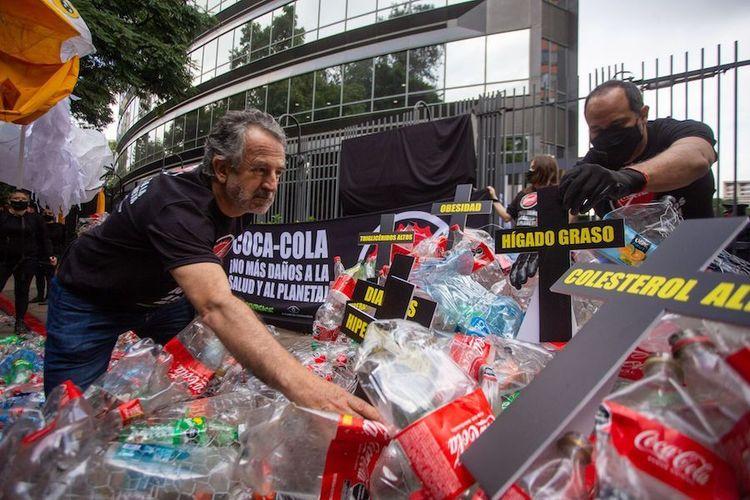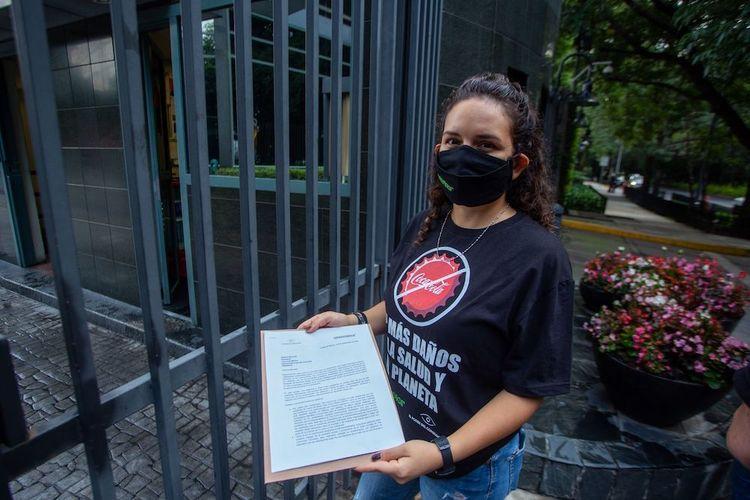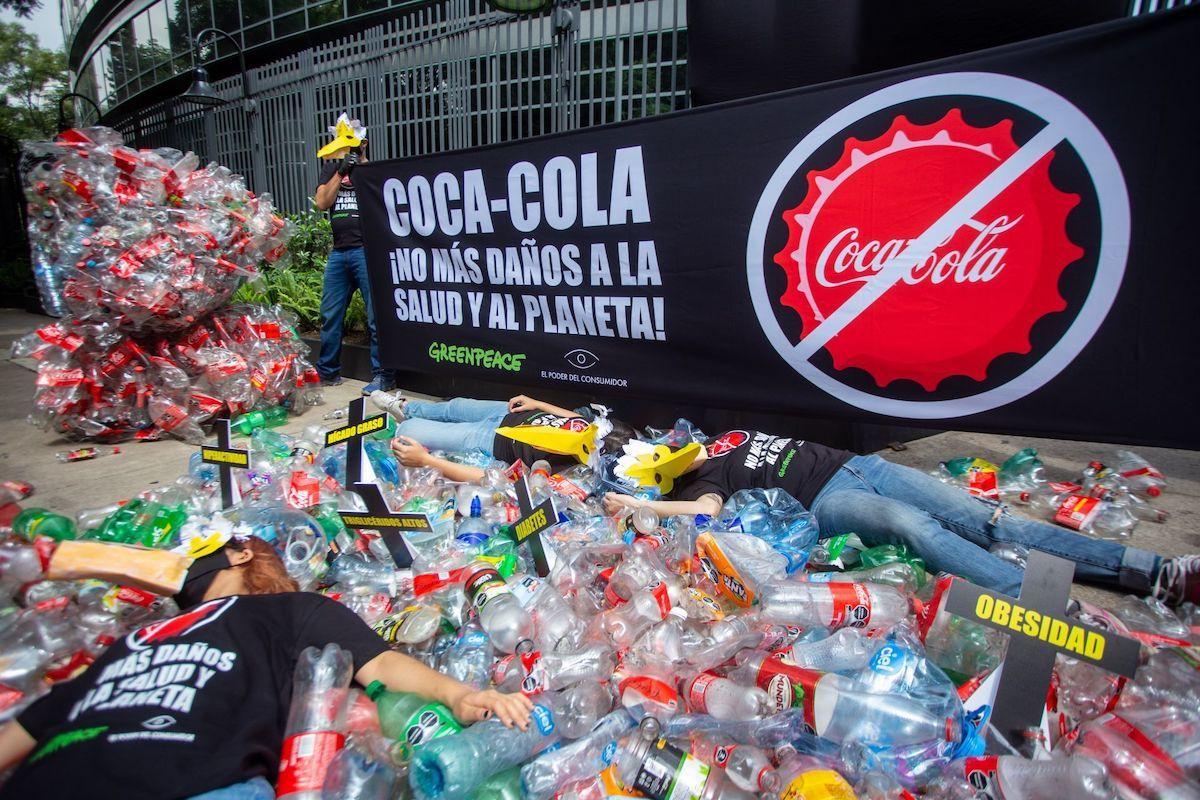In early September, a group of Greenpeace and Consumer Power activists symbolically placed dozens of containers outside Coca-Cola's headquarters in the Bosque de Chapultepec neighborhood of Mexico City. “No more harm to health and the planet!” said the banners hanging at the corporate entrance.
Both organizations, accompanied by Sumérgete MX, Colectivo Agua y Clima and Coa Nutrición, filed a complaint against the Mexican Coca-Cola Industry (IMCC) with the Federal Commission for Protection against Health Risks (Cofepris) and the Federal Consumer Attorney's Office (Profeco).
The reason is the misleading advertising attributed to the “Love Multiplies” campaign, in which the company highlights its contributions with recycling and water care practices.
The complainants launched the “Let's Uncover the Truth” countercampaign, exposing plastic pollution, the consumption of water to produce soft drinks, related diseases such as diabetes and even an alleged lobbying by subsidiaries to block state bans on plastics.
All of these problems are related to Coca-Cola's business in Mexico.

Greenpeace and Consumer Power demonstration outside the Coca-Cola facilities in Mexico City. Photo: Tomás Acosta/cuartoscuro.com
“The actions taken by IMCC in each of these areas are completely the opposite of what was described in its campaign. The Coca-Cola company has been characterized as one of the most harmful to health, water and the environment on our planet,” the organizations say in the complaint.
In it, data are cited to support the evidence of the effects. As is the case of the 40,000 annual deaths in Mexico linked to the consumption of sugary drinks, which represents 6.9% of total deaths in people over 20 years of age.
Another proof is the study by the association Break Free From Plastic, in which Coca-Cola positions itself as the world's leading producer of plastic waste, selling 3,500 plastic bottles per second. Each one has an average of 450 years to achieve its degradation.
“In addition to the legal complaint, we seek to reach consumers and raise awareness of company practices,” Jimena Silva, a member of Sumérgete MX, explained in an interview with Journalism CN.
Imérgete MX is a national network of young people that has worked to disseminate water consumption. In the case of Coca-Cola, there are estimates of using between 1.6 and 1.81 liters of water to produce one liter of beverage.
That when adding up the use of water for the production of sweeteners and packaging, it is obtained that for every half liter of soda, at least 35.4 liters of water are needed (7 liters of packaging, 0.4 liters of liquid product and 28 liters of sweetener).
In addition, the complaint mentions that in 2018 Coca-Cola Femsa only paid 2,600 pesos for each of the 46 water concessions operated in the country.
According to Silva, the complaint and the mobilizations seek that in Mexico, one of the main consumer countries of sugary drinks, there are more people who are critical of their own consumption habits, as well as of the companies that supply these products.
“From the private side, the right thing to do is to act up to the climate emergency and the water crisis. If (Coca-Cola) says it's doing something green, let it actually take action and don't give misleading marketing,” Silva said.

Filing a complaint for misleading advertising. Photo: Tomás Acosta/cuartoscuro.com
In addition to health damage, plastic pollution and the consumption of concessioned water, Greenpeace Mexico and El Poder del Consumidor have denounced the interference of the consortium, through lobbying, to block state regulations related to the regulation of plastic waste.
One of them was in 2021, when it was noted in the framework of the reform of the General Law for the Prevention and Integral Management of Waste that lobbyists managed to get the Senate to approve minutes to benefit companies.
“This is through the incorporation of a definition of single-use plastics that is committed to recycling and energy recovery”, as reported by Greenpeace.
This jeopardized the ban on plastics at the state level, leaving out the prevention and reduction industry, according to the organization.
In August 2022, Propimex and Oxxo, two subsidiaries of Coca-Cola Femsa, filed a series of amparos to not comply with the plastic ban in Oaxaca. These actions reached the Supreme Court of Justice of the Nation, which declared the prohibition measure unconstitutional, giving reason to the companies.
With the complaint to Cofepris and Profeco, civil organizations hope that Coca-Cola will withdraw the “Love Multiplies” campaign and that there will be possible economic sanctions, but mainly, a collective awakening to reduce consumption.
For this publication, Coca-Cola was contacted to find out its position following the complaint, but so far there has been no response.



Comentarios (0)